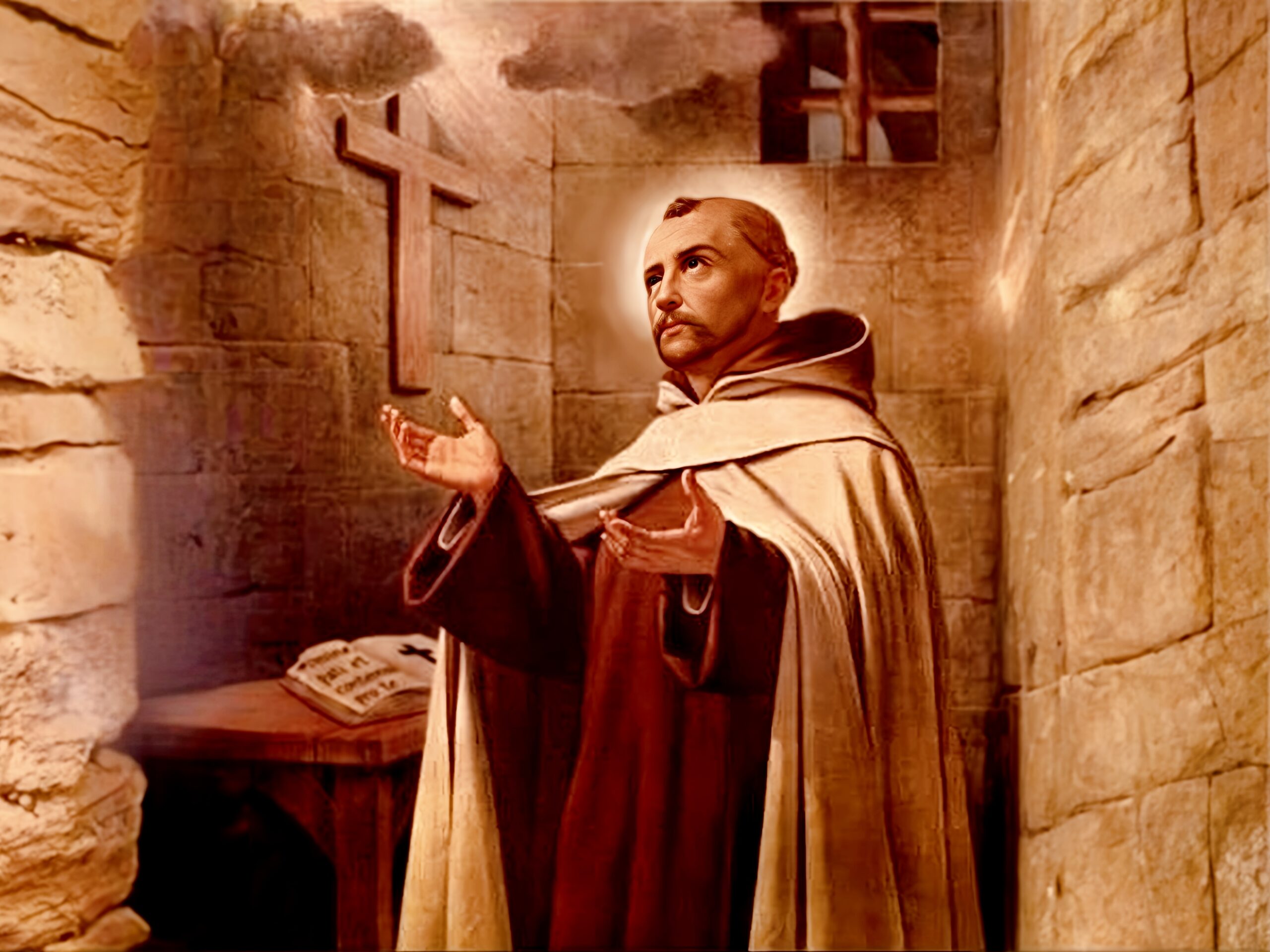
The Dark Night of the Soul: An Undertaking of Will
Exploring the Shared Mystical Heritage of Surrender Across Spiritual Traditions
Throughout human history, spiritual traditions have recognized a profound and transformative process that challenges the very foundations of identity, certainty, and meaning. Known in Christian mysticism as the “dark night of the soul,” this experience transcends any single tradition. Across Hinduism, Buddhism, Sufism, and beyond, similar trials form an essential part of the spiritual journey, representing a necessary confrontation with the illusions and attachments that bind the ego.
Often likened to a symbolic death, the dark night entails the dismantling of the self as it has been known, creating space for transformation and renewal. It is not a transient emotional crisis or a problem to be solved but a universal process that demands surrender and a willingness to endure deep uncertainty. By examining its expression across spiritual traditions, we can better understand its shared significance as a catalyst for transformation. Modern misunderstandings and commodifications of this experience risk trivializing its depth, making it even more important to explore its roots and shared wisdom.
Christian Mysticism: Surrendering to the Absence of Certainty
The “dark night of the soul” finds its most famous articulation in the writings of St. John of the Cross, a 16th-century Spanish mystic and poet. In his works The Ascent of Mount Carmel and The Dark Night, St. John describes a state of spiritual desolation in which the soul feels abandoned by God. This is not an act of divine punishment but a purgative process, stripping the soul of its reliance on sensory and intellectual consolations to prepare it for deeper union with the divine.
This process is often likened to a spiritual death—a severing of attachments that is as disorienting as it is transformative. St. John emphasizes that the dark night cannot be overcome by force of will or intellectual effort. Instead, it demands a conscious act of surrender—an acceptance of the unknown and a willingness to let go of all that once provided comfort and certainty. Through enduring this symbolic death, the soul is purified and drawn closer to the infinite.
Hinduism: Confronting Illusion and Surrendering to Truth
In Hinduism, the transformative trials associated with the dark night are not peripheral experiences but foundational aspects of the spiritual path. Both Jnana Yoga (the path of knowledge) and Bhakti Yoga (the path of devotion) explore the necessity of dismantling egoic illusions and surrendering to a greater truth.
Jnana Yoga: Dissolution of Illusion
Jnana Yoga centers on the concept of maya, the illusion of separateness that veils the ultimate reality of Brahman. Practitioners engage in rigorous self-inquiry (atma vichara), challenging the ego’s attachments to identity, desire, and the material world. This process often provokes an intense sense of existential disorientation, as the constructs of self and reality begin to dissolve—a symbolic death of the ego.
Yet, in Vedantic philosophy, this emptiness is not an end but a clearing—a necessary preparation for realizing oneness with Brahman. The act of surrender in Jnana Yoga involves relinquishing all egoic constructs and embracing the infinite, requiring both intellectual discipline and unwavering trust.
Bhakti Yoga: Devotion and the Transformation of Surrender
In Bhakti Yoga, surrender (prapatti) is framed as an act of love and trust directed toward a deity or guru. The devotee relinquishes all personal control, aligning their will entirely with the divine. This path, though grounded in devotion, is not without its trials. Moments of doubt, fear, or a perceived absence of divine presence often arise, mirroring the struggles of the dark night.
Through persevering in faith and trust, the devotee transcends the boundaries of ego and deepens their connection to the divine. Bhakti Yoga teaches that surrender is not a loss of agency but a transformative act, dissolving the barriers between the individual and the infinite. This dissolution, like a symbolic death, clears the way for renewal and unity.
Buddhism: Awakening to Inherent Wisdom
In Buddhism, the spiritual trials often associated with the dark night of the soul align with the process of uncovering an intrinsic and luminous nature present within all beings. This inherent truth, untouched by impermanence or illusion, reflects a boundless capacity for enlightenment that does not need to be created but simply revealed.
Unveiling the True Nature
The spiritual journey in this framework is not about erasing the self but about dissolving the layers of illusion and attachment that obscure one’s natural clarity and wisdom. These trials serve as a transformative purification, allowing practitioners to reconnect with their unchanging essence—a source of compassion, insight, and freedom that has always been present.
The Role of Meditative Practice
Through meditative practices that quiet the mind and deepen awareness, practitioners begin to confront the fears and resistances that arise from clinging to the ego’s constructs. As these dissolve, they encounter the inherent radiance and stability of their true nature.
The dark night, in this view, is a transformative process that clears away illusion and allows the brilliance of one’s fundamental essence to shine forth. It is not a loss but a return to wholeness, revealing the ever-present wisdom that lies within.
Sufism: Annihilation and the Path to Unity
In Sufism, the mystical tradition within Islam, the transformative trials of the dark night are reflected in the journey toward fana (annihilation of the self) and baqa (subsistence in God). These stages emphasize the necessity of dissolving the ego to achieve union with the divine.
The Trials of Annihilation
The Sufi path begins with the recognition that the ego is a barrier to divine connection. Through practices such as dhikr (remembrance of God) and spiritual discipline, the seeker confronts and releases attachments to identity, desire, and fear. This process, while deeply challenging, leads to fana, the annihilation of individual identity.
Fana is often likened to a death of the self—a necessary surrender that allows for transformation. This state is not erasure but a merging with the infinite reality of God. The trials of fana mirror the dark night in their demand for surrender and their capacity to bring renewal through this symbolic death.
Modern Misunderstandings
In popular culture, the term “dark night of the soul” is often misinterpreted as a reference to periods of emotional struggle, such as addiction, heartbreak, or professional setbacks. Social media and self-help narratives frequently equate this sacred spiritual journey with moments of confusion, isolation, or dissatisfaction. While such challenges can be significant and life-changing, they are not equivalent to the spiritual trials described in mystical traditions.
The dark night, as articulated in Christianity, Hinduism, Buddhism, and Sufism, represents a deliberate and often arduous dismantling of egoic attachments. It is not merely a phase of suffering but a sacred passage of surrender to a deeper truth or union with the divine. Reducing this transformative journey to a checklist of psychological symptoms or self-help advice risks trivializing its meaning and undermining its purpose.
This simplification reflects a broader cultural trend toward commodifying spiritual concepts, reframing them as tools for personal development rather than pathways to transcendence. By situating the dark night within its rightful context, we can better appreciate its role as a universal spiritual heritage—a journey that challenges the ego’s boundaries and opens the way to deeper understanding and renewal.
A Universal Call to Surrender
The dark night of the soul is not a singular phenomenon but a shared human experience embedded in the spiritual traditions of the world. Whether articulated through the Christian concept of divine absence, the Vedantic unveiling of Brahman, the luminous essence of Buddha-nature, or the Sufi journey toward fana, the dark night represents a universal process of reckoning with the ego and awakening to truth.
This symbolic death clears the way for renewal and growth. Understanding the dark night as part of a collective spiritual heritage enriches our capacity to engage with it meaningfully. It is not merely a phase to endure but a sacred passage that tests and hones the soul. In its universal call to surrender, the dark night offers the potential for profound inner change, reminding us of the enduring wisdom that underpins the human journey toward transcendence.
